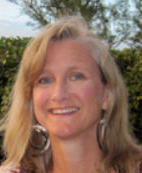Guest Post by Blair Van Brunt, Founder of Rare Disease Perspectives LLC
 Pediatric Caregiving
Pediatric Caregiving
I am a mom of a beautiful 21 year old daughter, Gracie, who has a rare disease called Shwachman Diamond Syndrome – a bone marrow failure, pancreatic insufficiency and skeletal disease. For the first 7 years of her life, she spent many a night at Children’s Hospital Boston (3-5 nights approx. every other month) with some sort of infection whether it was sepsis, pneumonia or cellulitis. At that time she hardly made any infection fighting white cells (neutrophils) and thus had a difficult time staving off these infections. Bug bites, scrapes, catching others' colds etc. usually turned into these life threatening infections and we became overly familiar with the wonderful caregivers at Children’s Boston.
As with so many rare diseases, there are many specialists involved, many appointments and monitoring of signs and symptoms, and I was the primary caregiver, the Captain of the Ship of Gracie.
But at the age of 7 our daughter, Gracie, began to produce more neutrophils and started becoming healthier which meant there were fewer overnights at the hospital. What a relief! As time went on there were even fewer trips to the doctor itself and Gracie’s inner strength and determination to fight this disease began to show results. This was a blessing as we entered the teenage years.
Adult Transition Caregiving
Fast forward to her high school years and this is where my caring for Gracie became the hardest. This is where I needed to let go of monitoring and questioning and let Gracie decide for herself what illness events needed attention. After Gracie got her driver’s license, I encouraged her to go to the pediatrician by herself (thankfully it was close by). We would talk about what she wanted to bring up in the appointment and what she hoped the results would be. We would review what her disease was all about, what tests she usually needed, what all of her allergies to medicines are, how to ask questions that might seem uncomfortable and what the doctor could and couldn’t do for her etc. With only a few calls from the pediatrician’s office while she was there over the years, Gracie began to understand what she needed to do to care for herself. She was becoming a spectacular First Mate.
The next letting go was a trip to one of her specialist doctors which was a 30 minute drive away in the suburbs. With more anxiety for me than her, Gracie made the appointment, got to the doctor’s office and got the results she needed for her care. She was once again becoming more self-sufficient in her own health care. Dare I say she was the new Captain of the Ship of Gracie!
Fast forward a couple of years later and now the really big test for me…a trip into Boston by herself for another specialist appointment. Not only did I need to project confidence for her sake but I needed to recognize that we have talked about everything for so many years that she really does know what she is doing and that she will be just fine! After 20 minutes on the phone because she got lost, all went well with the appointment and she really was proving to be a fantastic Captain of the Ship of Gracie.
The next big leap is when she moves across the country this coming April. There will be much to do for both of us to prepare for this. Health proxys, finding new specialists, finding a new primary, always wearing the Medic Alert bracelet, reminding her about when to go to the ER and when to just go to the primary…I could go on. But the bottom line is this:
Transition Care Urges Caregivers To:
- Allow your daughter/son to make her/his own decisions within the realm of safety
- Educate them on their disease
- Make a list of emergency contacts together
- Role play on how to speak to medical personnel
- Teach them about their medications and how and when to take them
- Encourage them to wear a Medic Alert bracelet if appropriate
- Educate them on insurance
- Know they will make mistakes–but we all do and we can learn from them
- And finally love love love them
By Blair Van Brunt, Founder of Rare Disease Perspectives LLC. Blair brings her unique patient organization leadership, patient insights and marketing experience to emerging biotechs to help them incorporate the patient voice into their business strategies as well as aiding them in communicating with the patient communities that they are involved with. She was president of the Shwachman Diamond Syndrome Foundation 2004-2012.
In 2011 Blair partnered with the Massachusetts Biotechnology Council to co- create the 1st ever Rare Disease Day Celebration in a State House to create an event that brings together rare disease patients, executives and scientists from pharma and biotechs, doctors, congress people, and patient advocacy groups to highlight why rare disease focus and funding matter to everyone. She and MassBio were honored with the Power of Partnership Award in 2012 by the National Organization of Rare Disorders and asked to create a toolbox for others to be inspired by and learn how to create a similar event at their state’s capital. To date there will be 35 State House events created for this coming 2016 Rare Disease Day.